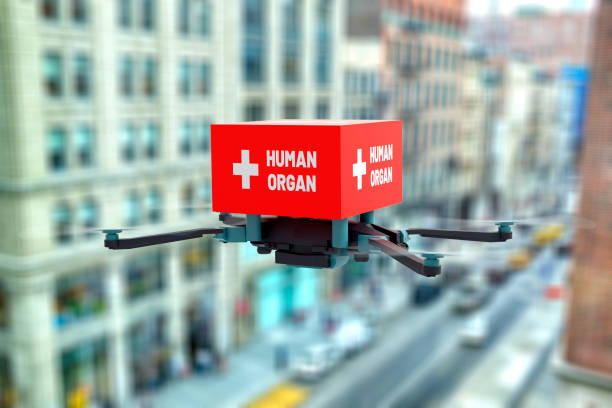Enhancing Healthcare Delivery with Drone Technology in 2024

Enhancing Healthcare Delivery with Drone Technology in 2024
Introduction In 2024, drone technology is reshaping the landscape of healthcare delivery, particularly in remote and hard-to-reach areas. Drones, also known as unmanned aerial vehicles (UAVs), are being increasingly utilized to transport medical supplies, blood, vaccines, and even organs. This innovative approach not only speeds up delivery times but also extends the reach of healthcare services to underserved populations.
The Impact of Drones in Healthcare Delivery Drones are revolutionizing the way medical supplies are delivered by providing a rapid, reliable, and efficient method of transportation that bypasses traditional logistical challenges such as poor road infrastructure and geographic barriers.
Benefits of Using Drones in Healthcare
- Speed of Delivery: Drones significantly reduce the delivery time for critical medical supplies, which is essential in emergency situations or during disaster relief operations.
- Access to Remote Areas: Drones can easily reach remote areas that are otherwise difficult for traditional delivery methods, ensuring that all populations have access to necessary medical resources.
- Reduced Costs: By automating deliveries and reducing the need for ground transportation, drones can help lower the overall costs associated with medical logistics.
Strategies for Implementing Drone Technology in Healthcare For healthcare systems considering the integration of drone technology, the following strategies are essential:
- Regulatory Compliance: Work closely with aviation and healthcare regulators to ensure all drone operations comply with national safety and privacy regulations.
- Partnerships with Technology Providers: Collaborate with drone technology firms to develop solutions tailored to the specific needs of healthcare delivery.
- Pilot Programs: Start with pilot projects to test and refine drone delivery systems in targeted locations before scaling up operations.
Challenges to Drone Integration While drones offer transformative potential, their integration into healthcare systems presents several challenges:
- Technological Limitations: Factors such as battery life, payload capacity, and navigation precision continue to limit wider adoption.
- Weather Dependency: Drone operations can be affected by adverse weather conditions, which may limit reliability in certain regions.
- Security and Privacy Concerns: Ensuring the security of medical deliveries and the privacy of patient-related information is paramount.
Conclusion Drone technology represents a promising advancement in healthcare delivery, especially for improving access in underserved and remote areas. As technology continues to advance in 2024, drones are expected to play an integral role in making healthcare more accessible and efficient.
Call to Action Healthcare leaders should actively explore the possibilities of drone technology as part of their strategy to enhance service delivery. Investing in drone logistics can lead to more equitable healthcare access and improved emergency response capabilities, significantly impacting patient care outcomes.



